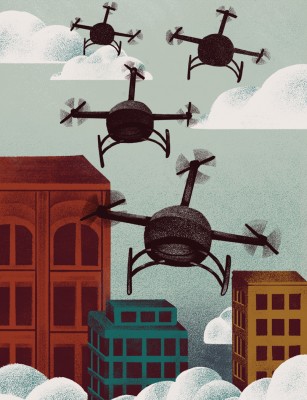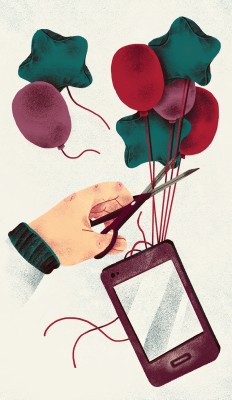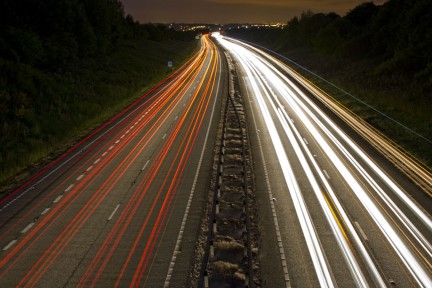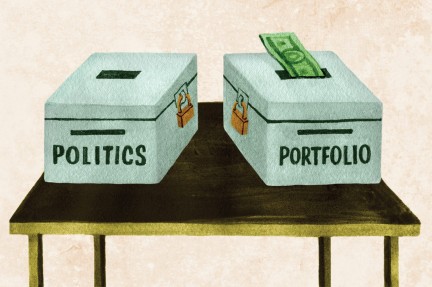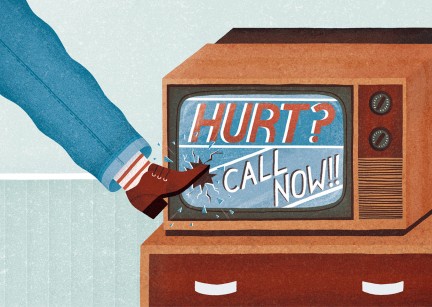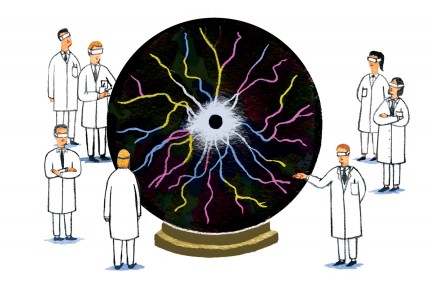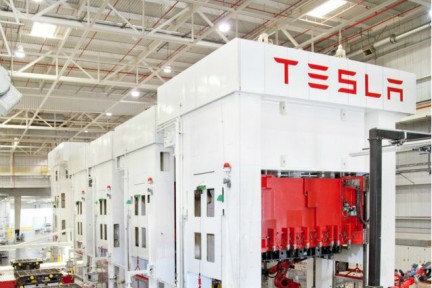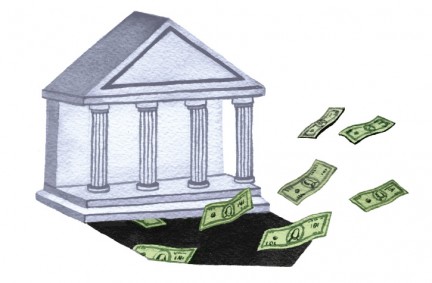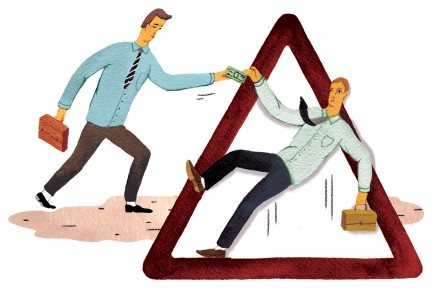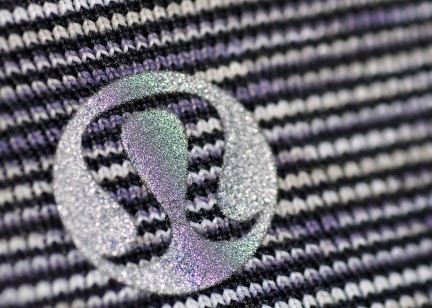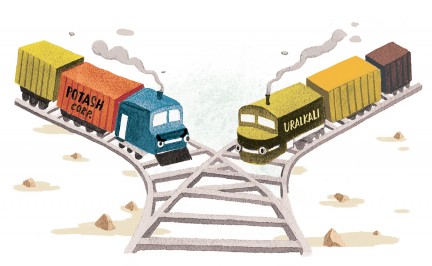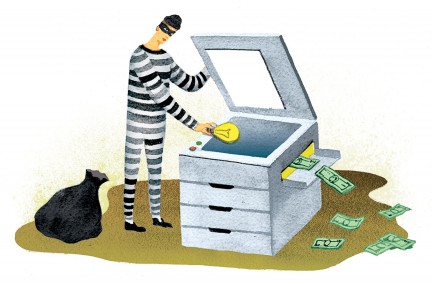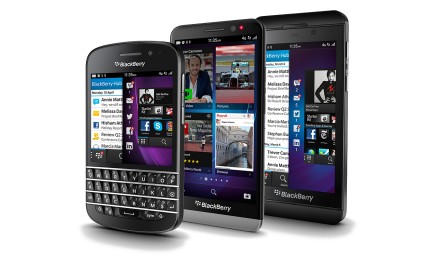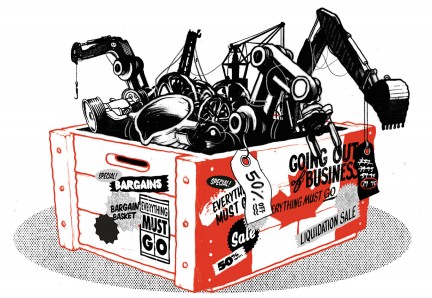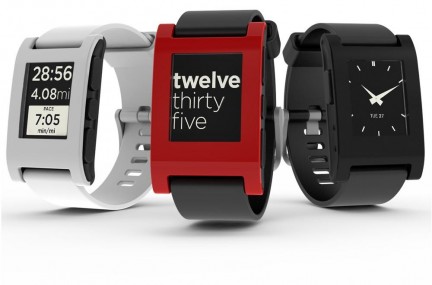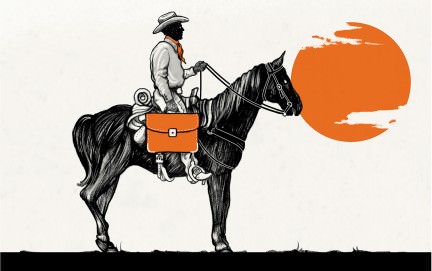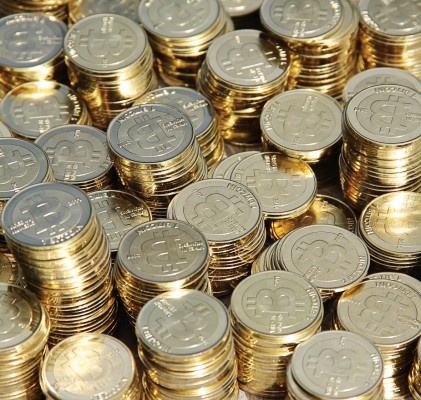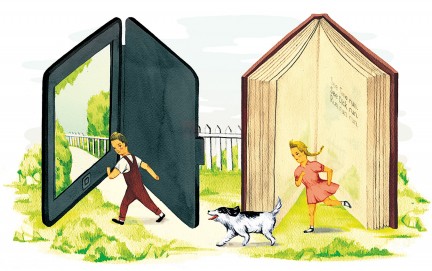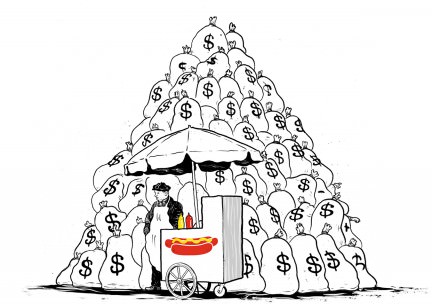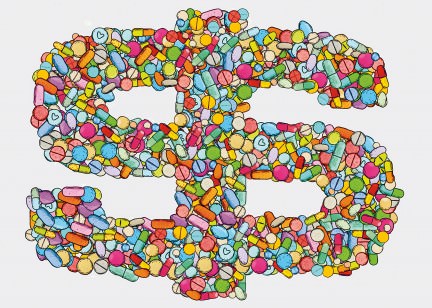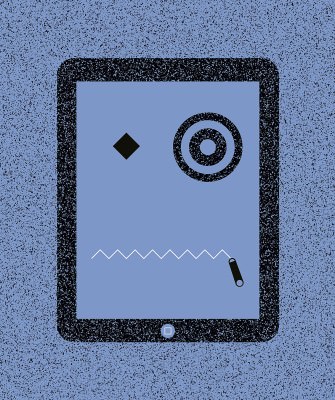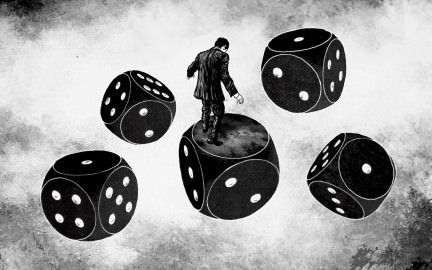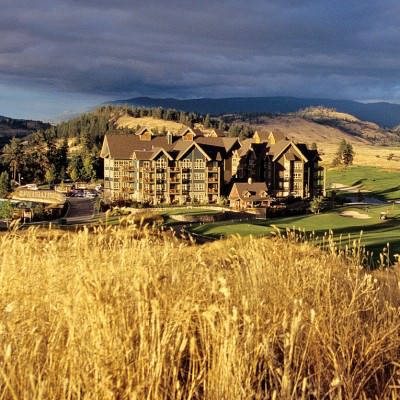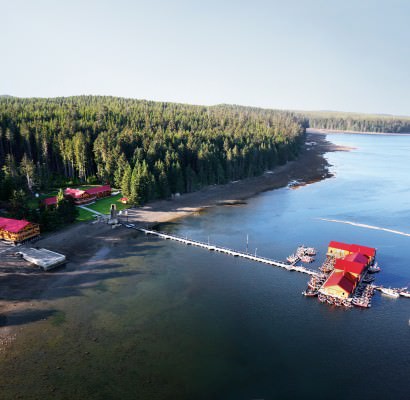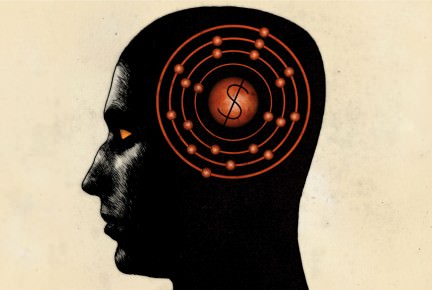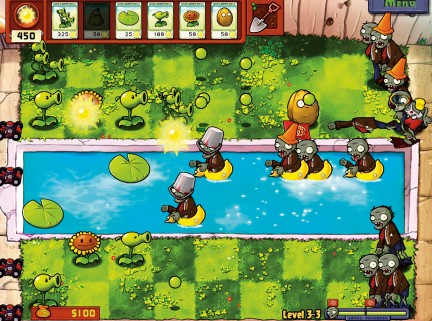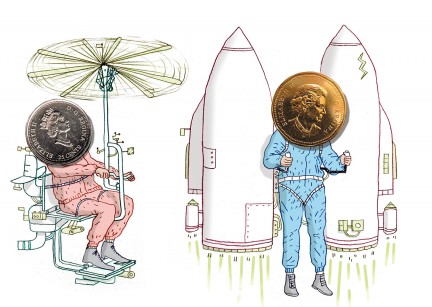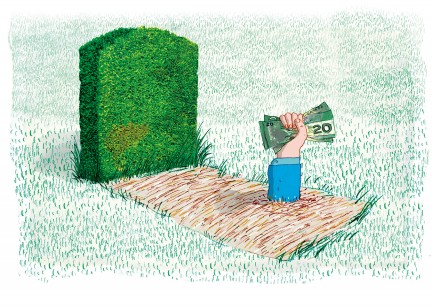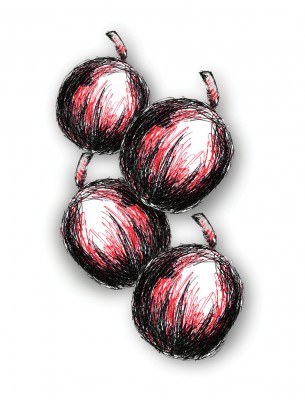The drones are coming, the drones are coming. Too late: they’re already here.
James Dolan
Smarten Up
New. Improved. Throw in free and you’ve got the three most powerful words in the English language. A lesson Silicon Valley learned very early.
Up, Up, and Away
Sometime next year, if you look up—way up—at just the right time, you might see something in the sky that wasn’t there before. That’d be the Dragon V2, the next generation of space “taxi” shuttling astronauts, cosmonauts, and the occasional space tourist across the cosmos.
The Apple Watch
If it is nothing else, the new Apple Watch is a wish—a fervent hope that lightning may indeed strike twice. You know, much like it did back in 2007, when the indomitable Steve Jobs pulled a nondescript glass-and-plastic brick out of his pocket and started a high-tech revolution the likes of which the world had never seen.
Net Neutrality
Consider yourself on the road. Consider yourself part of a traffic jam. You’re moving, sure, but you’re in a thick soup of bumper-to-bumper mayhem with nothing but tailpipes to the left and road rage to the right. But wait; up ahead, the road widens. A luxury sedan whips down the open road. Then another. And another. But hang on, you’re not allowed. It’s for first-class customers only.
Politics and Your Portfolio
Whoever thought up the “war is good for business” thing might want to check out the action on the Moscow Exchange this year. As the crisis in Ukraine came to a boil at the end of February, investor appetite for Russian equities went into a deep freeze, and the country’s benchmark Russian Trading System (RTS) stock-market index lost 19 per cent in a matter of weeks.
Seller’s Remorse
Never mind dropping out; as far as turning on and tuning in go, there’s never been a better time. Over the past decade, both cable and the major networks have upped their game, giving us better writing, better characters, better jokes, and better plot twists than we’ve ever seen on the small screen. As for the advertising—well, that’s another story.
Always On
Take everything you know about energy—burning oil, falling water, spinning windmills, splitting atoms—and forget it. All of it. Now, what does the world look like? Given what scientists at Lawrence Livermore National Laboratory in California have just managed to do, you may want to mull it over.
Tesla Motors’ Gigafactory
By now, you’ve probably heard about Elon Musk. He’s the 42-year old serial entrepreneur with the funny name and a chinful of three-day stubble who’s trying to make the internal combustion engine go the way of the great auk.
China’s Off-the-Grid Lending
Even the name sounds sketchy: “shadow bank”. An apt moniker for a business that lends like a bank, earns interest like a bank, has a pleasant and confidence-inspiring name like a bank, yet isn’t exactly a bank—particularly when it comes to regulations, transparency, and risk control.
We Can Build You
The first time you see Google Glass in real life, sitting astride some stranger’s nose, it’s hard not to be taken aback by the idea that the future—some form of it, at least—has indeed arrived.
Profiting from the Market Turmoil
Remember the meltdown of 2008? You know—the one where America’s housing market fell down a deep, dark hole, the world’s banks teetered on the edge of insolvency, stock markets did a face plant, and stockbrokers from here to Timbuktu considered (however briefly) defenestration as their next career move? Sure you do.
Lululemon’s Trials
No matter how it finishes, a bad year holds one consolation: eventually, it ends. Except when it doesn’t. Can “brand-as-business” overcome basic executionary missteps? Can the idea of a product (or an entire company, for that matter) overcome the reality?
Barrick Gold
You’d figure it’d be a pretty easy business. Find a hole with some gold in it, then dig; whatever comes out is essentially money. In reality, the business of gold mining is one of the most dangerous there is.
Stakes In The Fertilizer Business
In normal times, the business of fertilizer is only slightly more interesting than the soil one spreads it on: one of those super-simple, steady-Eddie, boring-but-profitable businesses every investor loves.
The Patent Troll Sector
Lower than the used-car salesman. Or the telemarketer. The repo man, too. Maybe one notch above that guy from Nigeria who’s always sending you e-mail. That’s a good approximation of the esteem with which the patent troll is held within the pantheon of the world’s professions.
Twitter’s IPO
Another day, another dollar. Or several billion of them, if you happen to work for social media giant Twitter. Last Thursday marked the first day of public trading for the San Francisco-based company, which put about 70-million of its shares (about 13% of its horde) up for sale. Needless to say, things went well.
Get Rich Quick
How to get rich quick: (a) find a cache of pirate booty buried underneath the shed, (b) discover a long-lost Picasso behind the camping gear in the attic, or (c) get in on the ground floor of the next social networking IPO.
The 2013 Solar Decathlon
The United States Department of Energy wants to solve the world’s energy problems—one sunbeam at a time. Held every two years, the Department’s Solar Decathlon is a student design competition that celebrates the latest in clean-energy home building practices in an attempt to show both home builders and homeowners how good green can be.
The Curtain Falls
For a company worth at one time something north of $200-billion, it is indeed an inglorious end. As for a surprise— well, no.
(Not So) Great White North
Ahhh, those were the days. In 2008, the world economy was swooning. Stock markets on all five continents were in freefall. The titans of Wall Street were drowning in an ocean of red ink—as were several European countries. There, amidst the financial apocalypse stood Canada.
Kickstarter comes to Canada
Calling all entrepreneurs: online crowdfunding company Kickstarter is coming north of the border.
Apple Doubles Down
And then there were two. Tech giant Apple has released not one, but two brand-new versions of its trend-setting, buzz-generating, profit-making phone.
Brave New World
It was all Jim O’Neill’s fault. In November 2001, the chair of Goldman Sachs’ asset management division started talking about how the BRIC countries—Brazil, Russia, India, China—would soon outstrip the developed nations and come to rule the economic world.
Digital Currency
Bread. Cabbage. Dough. Green. Moolah. Scratch. Call it what you will—it makes the world go round. But the day is rapidly nearing when consumers need never get their hands sullied by filthy lucre again—mostly because they will never see it.
In Other Words
“Run, run. Run, Dick, run. Run and see.” From such humble beginnings many of us were introduced to the wonders of the written word. By studiously following the adventures of the sprightly Dick and his spunky sister Jane, we were taught not only the building blocks of grammar, but the basics of plot, character, and point-of-view.
The Rise of Private Equity
That street vendor hawking Japanese-style hot dogs in front of your office tower. That place on Main Street that’s been selling carpet since forever. That multi-billion-dollar conglomerate that’s into everything from automotive retailing to radio broadcasting to apple juice. They all have something in common: they’re all privately owned. And they’re all making money hand over fist.
Virtual Universities
Have and have-not: in the post-industrial age, the border between the two will not be defined by wealth or bloodline, but by education—by what initials you’re entitled to put behind your name, and what income you’re able to extract from them.
Investing in Health Care
Death, taxes, and the lengths to which we will go to avoid either: three things of which we can be reasonably certain in this increasingly uncertain world. Such wisdom accounts for the ongoing popularity of, among other things, organized religion and offshore tax havens. It also goes a long way to explaining why health care may be the best investment idea of all time.
Internet Reputation Management
It was all such a noble idea: the ability to talk to, learn from, and work with people from all over the world. The liberty to exchange opinions, to explore bold new ideas. But in practice, the freedom offered by the Internet has proven to be something of a double-edged sword.
The Bond Market
People invest for many reasons, but at the foundation of them all is the expectation of your investment appreciating over time; to get more money out of the effort than you put in. Someone has apparently forgotten to pass the memo on to bond investors.
Online Piracy and SOPA
Confession time: when was the last time you actually paid for music? As in, visited a record store (either bricks-and-mortar or virtual) and anted up for the latest and/or greatest from Lady Gaga, Lady Antebellum, Ladytron, or whoever sits at the top of your favourite playlist. Been a while? You’re not alone.
Second Home, Prime Opportunity
Whether it be an uninsulated shack on the side of a distant mountain or a 10-bedroom mansion on the shore of a lake, the cottage is the ultimate escape —from noise, pollution, people, routine, responsibilities, the rat race, civilization itself—if only from Victoria Day to Labour Day. It can also be a darn fine investment.
Tech Trash
A wide cesspool, the flotsam and jetsam of a thousand cities half-submerged in its moss-green water. Garbage piled in haphazard heaps. Fires belching acrid, jet-black smoke into the pale blue sky. A mob of grubby, half-dressed children poking a burning pile of plastic with charred sticks. All that’s missing are the Four Horsemen.
Internet Censorship
The anything-goes scripto-anarchy of online culture has made electronic censorship a rather elusive goal. Short of pulling the plug on the entire Internet (and accepting the resultant economic consequences), it’s difficult for state-controlled agencies to monitor an ever-increasing mountain of user-generated blogs, articles, video, comments, and tweets. As fast as it’s taken down, it goes right back up.
Investing in Biotechnology
Hard drives, silicon wafers, evil robots bent on destroying humanity—just a few of the things that come to mind when one’s thoughts turn to technology. But there is another side to technology, one that has nothing to do with either Silicon Valley or galaxies far, far away. A technology expressed not in ones and zeros, but in the complex sequences of proteins and amino acids that form the building blocks of life itself.
The Economics of Investing in Food
Keep your eye on the register as your cashier rings up your groceries. Notice something? That’s right: you’re paying more than you used to for everything that passes by the bar code scanner. And that, dear reader, could very well be the best investment idea you’re likely to hear over the next decade.
Predator Ridge Resort
Golf is a game of inches, both literal and figurative. A slight shift from front foot to back; an additional degree of inclination on a club face; a ball that rolls a little to the left rather than the right—any of these can make the difference between an afternoon spent dreaming about turning pro and one spent ruing the day you first put hand to club.
Queen Charlotte Lodge
Thirty pounds: it doesn’t sound like too much of a burden. But when it’s thrashing and jumping on the end of 18 metres of thin nylon line as your boat rises and falls in a two-metre swell—well, 30 pounds might as well be a full-sized car.
The Big Give
After a lifetime of financial freedom and material abundance, how does one make meaning out of one’s millions? Giving back to the community, helping those less fortunate, improving the world—all noble goals. But how, practically, does one do it? How can one get good work done while getting the best bang for one’s charitable buck?
Cyber Crime and Punishment
Crime, we are told, does not pay. Clearly someone forgot to pass on the memo to Nigeria, where enterprising crooks have transformed an age-old confidence trick into a significant, if scandalous, contribution to the African nation’s GDP. For nearly 30 years now, the 419 scam (so named for the statute in Nigeria’s criminal code that prohibits it) has been filling inboxes across cyberspace.
Hot Commodities
When it comes to making money, commodities offer plenty to get excited about. In fact, over the past decade, instead of putting your hard-earned cash into big-name brands, blockbuster drugs, or high-flying dot-coms, you would have been far better served by investing in rocks and stones: zinc, copper, potash, gold, uranium, and a variety of other metals and minerals.
PopCap Games
They’re coming. The undead, that is. The only thing standing in their way: my garden. Such is the premise behind the appropriately named Plants vs. Zombies, the latest in a string of best-selling video games by Seattle-based PopCap Games.
The Canadian Dollar
It used to be the easiest job on Bay Street. In days gone by, one required neither an advanced degree in economics nor a crystal ball to predict the performance of the Canadian currency.
Hedge Funds
Annus horribilis. Of all the ways to describe the experience of hedge fund investors in 2008, none come quite as close as this to capturing the sense of disillusion and despair at a year in which the best-laid financial schemes went spectacularly awry.
Softwall
Built by Vancouver-based molo Design, Softwall is a wall like no other: 400 layers of honeycombed fire-retardant paper some six feet tall, one foot thick and anywhere between eight and twenty feet long.
Pepper
It has forged empires, spared cities from destruction, built and destroyed fortunes. It is piper nigrum, black pepper, the king of spices, the spice of kings.

